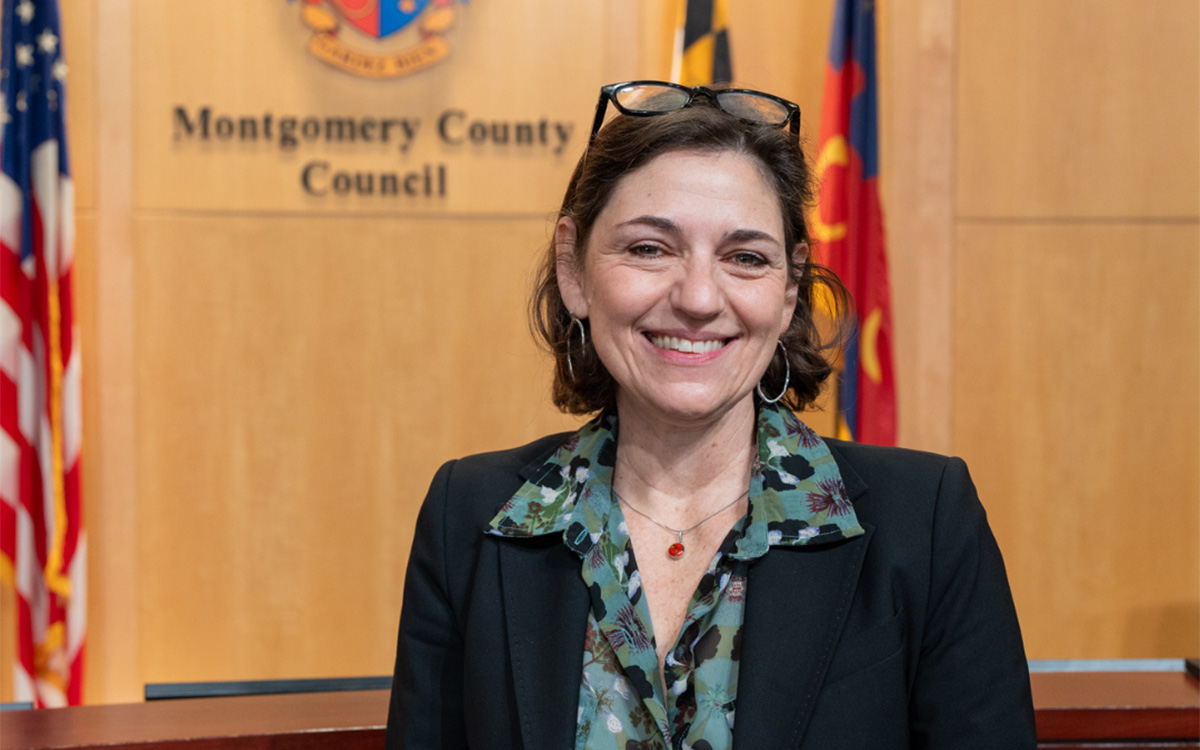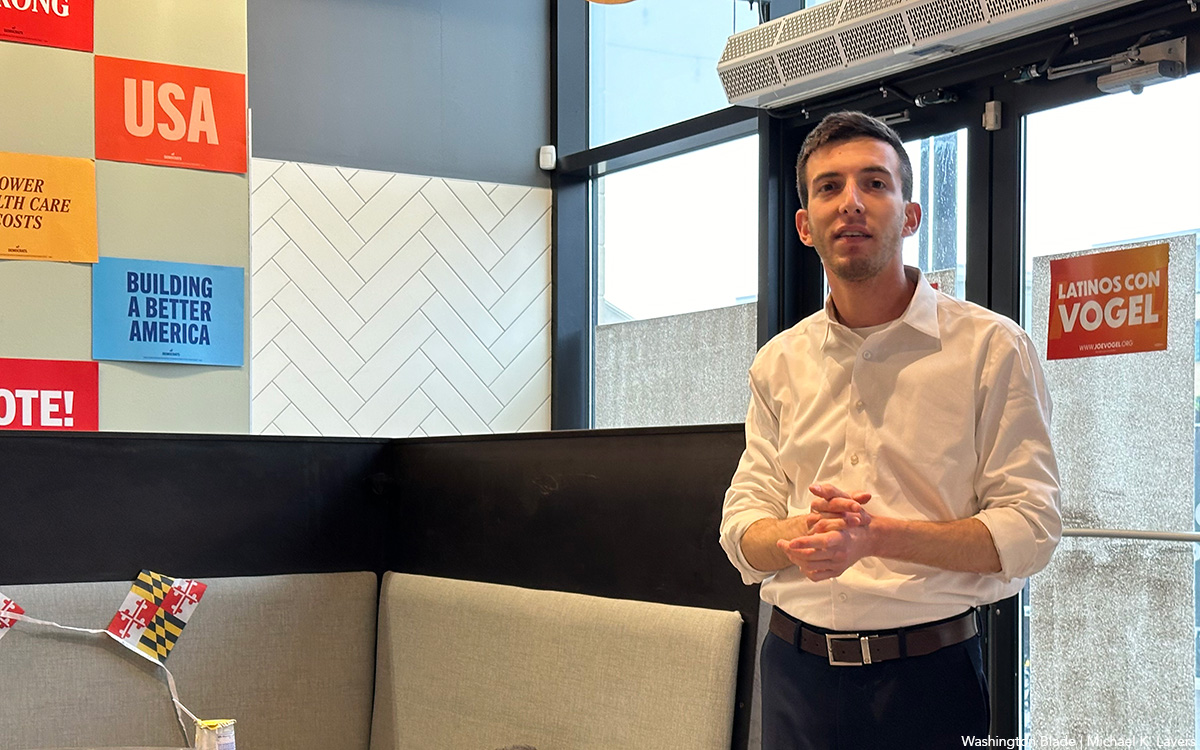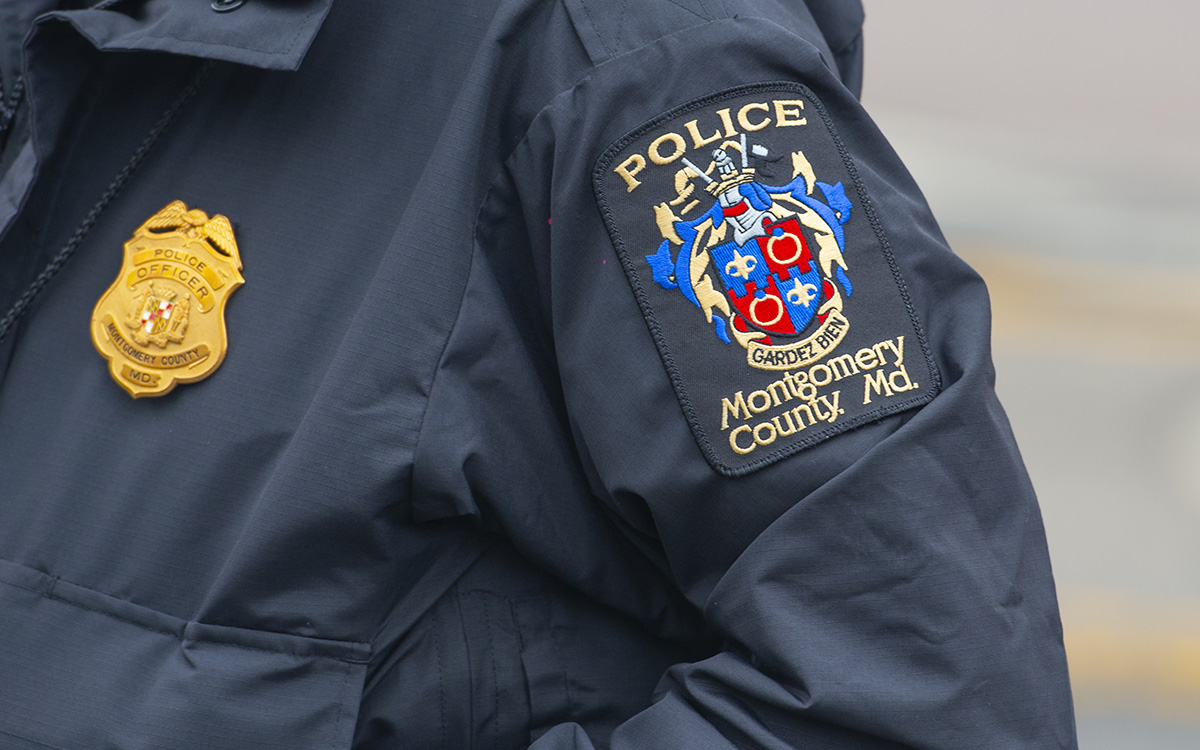Maryland
Montgomery County summit responds to transgender health care challenges
Council Vice President Kate Stewart’s son is trans

Maryland earns high marks overall from the Movement Advancement Project for its LGBTQ policy protections, including becoming a “shield” state for transgender health care, but a Montgomery County survey that found trans youth face difficulties in accessing care prompted Council Vice President Kate Stewart and a county health nonprofit to convene a virtual roundtable on Saturday.
“My son transitioned when he was in high school and our local pharmacy regularly did not have the correct size syringes,” Stewart told the Washington Blade during a telephone interview. “I had to take off from work and drive from Takoma Park to Chase Brexton in Howard County. That’s not a quick drive, and not accessible by public transportation.”
She said Trans Maryland’s work helped make syringes more available now, but more needs to be done to increase access to equitable care at the local level.
Maryland is one of 15 states, along with D.C., to which the Movement Advancement Project gave a high overall score for its LGBTQ policies. In terms of trans health care equity, 22 states have banned medically advised care for transitioning youth as of 2023, with Missouri banning similar care for adults. In response, D.C. and 14 states, including Maryland, enacted “shield” laws to protect equal access to health care.
Maryland’s Trans Health Equity Act, effective Jan. 1, requires Medicaid to cover trans-affirming care. However, a Montgomery County survey found 41 percent of those needing such care reported difficulty finding it in the county.
While the report listed three clinics — Planned Parenthood, Mary’s Center and CCI Health Services — trans residents were unaware of their services or where to look for them locally. More familiar were services provided by Chase Brexton Health and Johns Hopkins in Baltimore, and D.C.’s Whitman-Walker Health, mostly due to their long histories of work and advocacy across the region. But for the gender-diverse leaders on the panel, equity meant having local access to health care.
“Those without transportation or wealth aren’t able to receive transition health care in their community,” said Rev. Ali K. C. Bell, a minister for Congregational Life at Cedar Lane Unitarian Universalist Church.
Bell said he was privileged to be able to travel to Baltimore for the health care he needed but was disappointed by the economic disparity.
CCI Health Services, a community health center with a decades-long history in the area, joined with Stewart in hosting the roundtable to address the issues raised by the report.
CCI Chief Medical Officer Dr. Will Giodano-Perez announced a new clinic specializing in sexual and minority health, but acknowledged more could be done to address legacy discrimination and abuse.
“Our mission is to promote excellent health care for everyone,” Giodano-Perez said. “We have to be aware of what kinds of conversations we are not having with our patients and to focus on [addressing] our own biases.”
Trans Maryland Executive Director Lee Blinder spoke of their experiences often educating health care professionals while being treated.
“One day I’m going to invoice that doctor about ‘training’ them on how to treat me and others like me,” said Blinder, who grew up in Montgomery County. “I’d like to have a provider that I don’t have to train. When you’re sitting there in that paper gown, you’re vulnerable.”
Bell also emphasized everyone in the provider’s office needs to be trained in order for the health care experience to be considered affirming. Looking to the future, Amena Johnson, the LGBTQ liaison for the Montgomery County Office of Community Partnerships, stated that health disparities faced by LGBTQ seniors should be addressed as well.
“We are not all children or young people. I hope to be an old trans person one day, and it doesn’t look like a great landscape, frankly,” Blinder said before relaying an experience about visiting their grandmothers in retirement facilities and the care teams not being ready to interact with them as a trans grandchild, much less as a future trans resident.
Giodano-Perez acknowledged the pain caused by these difficult health care experiences, but admitted one health organization cannot handle these issues alone and it would take involvement and support from the community.
“We are limited with how much time we have,” he explained, noting the frustration of not being able to address all of the social determinants of health, but also not wanting to see “another of our patients pass from suicide.”
He stated one place to start was to make care respectful and effective for everyone.
“Sounds basic,” he said, “but we’re going to tackle these things.”
Stewart told the Blade her challenges seeking care for her son showed her health equity was about having access to resources where you lived.
“On a map it may look like, well, we have Chase Brexton over here and Whitman-Walker in D.C.,” she said, “but connecting with people’s everyday experiences … shows how much work we still have to do.”
Maryland
Health care for Marylanders with HIV is facing huge cuts this summer
Providers poised to lose three-quarters of funding

BY MEREDITH COHN | By the end of June, health care providers in Maryland will lose nearly three-quarters of the funding they use to find and treat thousands of people with HIV.
Advocates and providers say they had been warned there would be less money by the Maryland Department of Health, but were stunned at the size of the drop — from about $17.9 million this fiscal year to $5.3 million the next. The deep cuts are less than three months away.
The rest of this article can be read on the Baltimore Banner’s website.

GAITHERSBURG, Md. — Maryland state Del. Joe Vogel (D-Montgomery County) on Friday held a “Big Gay Canvass Kickoff” event at his congressional campaign’s headquarters.
LGBTQ+ Victory Fund Vice President of Outreach and Engagement Marty Rouse and John Klenert, a member of the DC Vote and Victory Fund Campaign board of directors, are among those who participated alongside members of Equality PAC. Vogel spoke before Rouse, Klenert and others canvassed for votes in the area.
“Joe brings a fresh new perspective to politics,” said Gabri Kurtzer-Ellenbogen, deputy field director for Vogel’s campaign.
Vogel, 27, is among the Democrats running for Congressman David Trone’s seat.
Trone last May announced his bid to succeed retiring U.S. Sen. Ben Cardin (D-Md.) in the U.S. Senate.
The Democratic primary is on May 14. Vogel would be the first Latino, the first gay man and first Gen Zer elected to Congress from Maryland if he were to win in November.
“We need a new generation of leadership with new perspectives, new ideas, and the courage to actually deliver for our communities if we want things to get better in this country,” Vogel told the Washington Blade last month during an interview in D.C.
Maryland
Montgomery County police chief discusses arrest of trans student charged with planned school shooting
County executive tells news conference student’s trans identity is irrelevant to criminal charge

Montgomery County, Md., Police Chief Marcus Jones joined other county and law enforcement officials at a news conference on Friday, April 19, to provide details of the police investigation and arrest of an 18-year-old high school student charged two days earlier with threats of mass violence based on information that he allegedly planed a mass shooting at the high school and elementary school he attended in Rockville, Md.
In charging documents and in a press release issued on April 18, Montgomery County Police identified the arrested student as “Andrea Ye, of Rockville, whose preferred name is Alex Ye.”
One of the charging documents states that a friend of Ye, who police say came forward as a witness who played a crucial role in alerting authorities to Ye’s threats of a school shooting, noted that Ye told the witness that Ye identified as the transgender student he wrote about as a character in a 129-page manifesto outlining plans for a school shooting. Police have said Ye told them the manifesto was a fictional story he planned to publish.
At the news conference on Friday, Police Chief Jones and other law enforcement officials, including an FBI official and Montgomery County Executive Marc Elrich, referred to the student as Alex Ye and Mr. Ye. None of the officials raised the issue of whether Ye identified as a transgender man, seven though one of the police documents identifies Ye as a “biological female.”
County Executive Elrich appeared to express the views of the public officials at the news conference when one of the media reporters, during a question-and-answer period, asked Elrich why he and the others who spoke at the news conferment failed to “admit that this individual was transgender.”
“Because it’s not a lead,” Elrich replied, asking if the press and law enforcement authorities should disclose that someone arrested for murder is “a white Christian male who’s heterosexual.” Elrich stated, “No, you don’t – You never publish somebody’s sexual orientation when we talk about this. Why you are focusing on this being a transgender is beyond me. It’s not a news story. It is not a crime to be transgender.”
The reporter attempted to respond but was cut off by the press conference moderator, who called on someone else to ask the next question.
In his remarks at the press conference Chief Jones praised the so far unidentified witness who was the first to alert authorities about Ye’s manifesto appearing to make threats of a mass school shooting.
“Now, this is a situation that highlights the critical importance of vigilance and community involvement in preventing potential tragedies,” Jones said. “I commend the collaborative efforts of the Montgomery County Police Department, the Federal Bureau of Investigation, the Rockville City Police Department, and the Montgomery County Public Schools, as well as Montgomery County Health and Human Services,” he told the gathering.
“Thanks to their swift action and cooperation a potentially catastrophic event was prevented,” Jones said.
Jones pointed out that during the current school year, police have received reports of 140 threats to the public schools in Montgomery County. He said after a thorough investigation, none of them rose to the level where an arrest was made. Instead, police and school officials took steps to arrange for the student making the threats and their parents to take remedial action, including providing mental health services.
“But this case is different,” Jones said. “This case is entirely different that takes it to a different level. It was a concerned witness who brought this matter to light by rereporting the suspect’s manifesto to the authorities. This underscores the value of community engagement and the ‘see something say something’ approach,” he said.
Jones mentioned at the press conference that Ye was being held without bond since the time of his arrest but was scheduled to appear in court for a bond hearing on Friday shortly after the press conference took place to determine whether he should be released while awaiting trial or continue to be held.
In his manifesto obtained by police, Ye writes about committing a school shooting, and strategizes how to carry out the act. Ye also contemplates targeting an elementary school and says that he wants to be famous.
In charging documents reported on by WJLA 7 and WBAL 11, the 129-page document, which Ye has referred to as a book of fiction, included writings that said, in part:
“I want to shoot up a school. I’ve been preparing for months. The gun is an AR-15. This gun is going to change lives tomorrow … As I walk through the hallways, I cherry pick the classrooms that are the easiest targets. I need to figure out how to sneak the gun in. I have contemplated making bombs. The instructions to make them are surprisingly available online. I have also considered shooting up my former elementary school because little kids make easier targets. High school’s the best target; I’m the most familiar with the layout. I pace around my room like an evil mastermind. I’ve put so much effort into this. My ultimate goal would be to set the world record for the most amount of kills in a shooting. If I have time, I’ll try to decapitate my victims with a knife to turn the injuries into deaths.”
-

 State Department4 days ago
State Department4 days agoState Department releases annual human rights report
-

 South America2 days ago
South America2 days agoArgentina government dismisses transgender public sector employees
-

 District of Columbia2 days ago
District of Columbia2 days agoCatching up with the asexuals and aromantics of D.C.
-

 Politics4 days ago
Politics4 days agoSmithsonian staff concerned about future of LGBTQ programming amid GOP scrutiny











